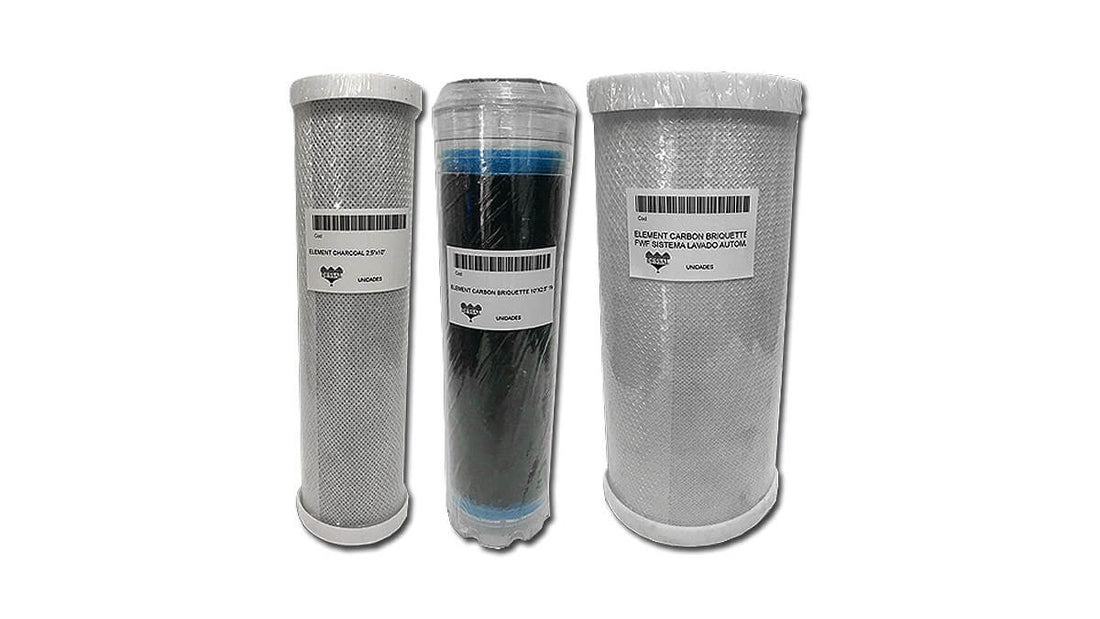ACTIVATED CARBON FILTERS
Compartir

Among the most common filters for tap water we find the granular or block activated carbon filter.
But what material are activated carbon filters made of and what are the similarities and differences with coconut fiber filters?
Coconut fiber filters
Coconut husk fibres are processed to create a mechanical filter for suspended particles and sediment. The resulting brown or beige filter is very effective at removing large particles such as sand, silt and rust . However, it is less effective at removing chemical and dissolved organic contaminants, so it is mainly used as a pre-filter before passing water through finer filters.
Activated carbon filters
Activated carbon filters are made by processing different materials at high temperatures, including coconut shells, wood or coal. This process significantly increases the surface area and transforms the raw material into a black, microporous material that adsorbs (traps on its surface) small, low molecular weight compounds such as chlorine, volatile organic compounds (VOCs), pesticides, herbicides and certain heavy metals . Activated carbon filters also improve the taste and odour of water.
If we want to specify the origin, depending on the raw material, we can talk about activated carbon filters (in English activated carbon filter or charcoal filter ) or coconut shell activated carbon filters (in English coconut shell activated carbon filter ).
Active carbon filter 9 3/4" x 2 1/2", 1 Micron – DESSAL MARINE TECH